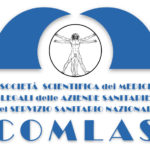
Don’t prescribe clinical and instrumental tests aimed at the assessment of any disability otherwise already clinically proven.
Avoiding duplication of redundant investigations implies exerting forensics fairly and respectfully towards people with disabilities, preventing them and their relatives from unnecessary inconveniences without clogging up waiting lists with inappropriate prescriptions as well as sparing incorrect allocation of limited public resources. .A single forensic assessment moreover may act as a key to access to all the benefits provided for by national and regional arrangements thus simplifying paths undertaken in the care of disabled people.
Sources
1. Iacone G, Buccelli C, L’invalidità civile. Aspetti sostanziali, processuali, medico legali., ed. Cedam, Padova 2008.
2. Vitiello G., Catalano C., Antonelli F. et al “Invalidità civile, disabilità, handicap”,C.G. Edizioni Medico Scientifiche, 2007.
3. Decreto ministeriale - Ministero dell’Economia e delle Finanze, 2 agosto 2007, recante la "Individuazione delle patologie rispetto alle quali sono escluse visite di controllo sulla permanenza dello stato invalidante." (Pubblicato in Gazzetta Ufficiale del 27 settembre 2007, n. 225).
4. De Palma A, Alcune riflessioni in materia di assistenza socio-sanitaria, in “Menomazione, capacità, partecipazione: metodologia medico-legale per l’accertamento delle disabilità civili. Prospettive di riforma del sistema di sicurezza sociale per una migliore tutela della integrazione del cittadino disabile”, ed Essebiemme, Noceto (PR), 2005.
Attention. Please note that these items are provided only for information and are not intended as a substitute for consultation with a clinician. Patients with any specific questions about the items on this list or their individual situation should consult their clinician.


Recent Comments